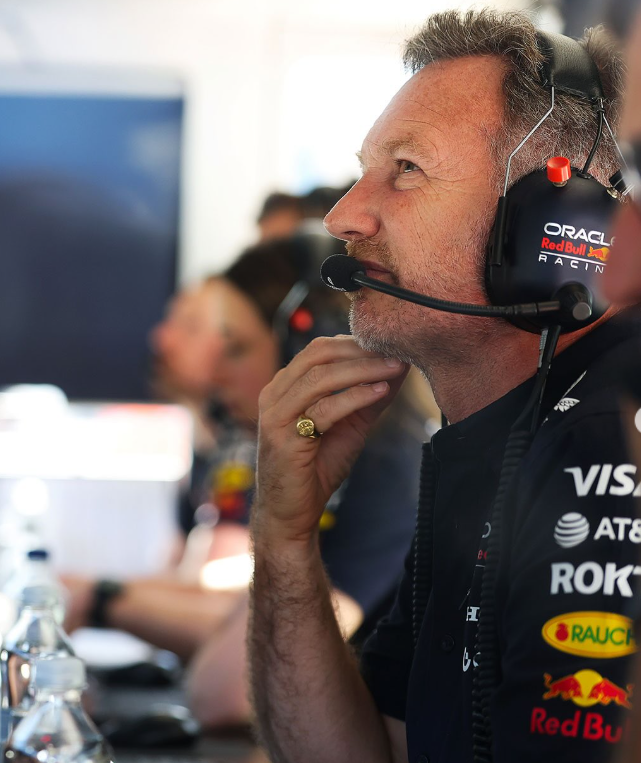Horner’s Red Bull Exit: A New Chapter for F1
By Maya Carter |

Red Bull Racing stunned the Formula 1 world with the immediate sacking of Christian Horner, their team principal of 20 years, announced on July 9. Having guided Red Bull to eight drivers’ championships and six constructors’ titles, Horner’s departure ends a transformative era for the team. Laurent Mekies, formerly of Racing Bulls, steps in as CEO, tasked with steering a struggling squad through turbulent times.
For F1 fans, especially in the US, this shakeup reshapes the sport’s competitive landscape. With Red Bull lagging behind McLaren in the constructors’ standings and Max Verstappen fielding offers from Mercedes, Horner’s exit raises the stakes. This article dives into Horner’s legacy, the reasons for his firing, and what Mekies’ leadership means for Red Bull’s future. Let’s explore why this move is electrifying F1 and what lies ahead for the Milton Keynes team.
Christian Horner’s Red Bull Legacy
From Startup to F1 Powerhouse
When Red Bull bought Jaguar’s F1 team in 2005, a 31-year-old Horner took charge, turning an underdog into a juggernaut. His leadership delivered 124 race wins, 107 pole positions, and 287 podiums, with Sebastian Vettel’s four straight drivers’ titles and Max Verstappen’s recent championships as crowning achievements. Recruiting design legend Adrian Newey was a masterstroke, fueling Red Bull’s dominance.
Horner’s charisma, spotlighted in Netflix’s Drive to Survive, made him a key figure in F1’s global surge. His tenure wasn’t without drama, notably a 2024 scandal involving allegations of inappropriate behavior by a female employee—claims he was cleared of after two investigations.
Why Horner Stood Out
Horner’s blend of bold strategy and media savvy set him apart. He steered Red Bull through two golden eras with Vettel and Verstappen, fostering innovation and navigating F1 politics. His knack for securing Thai shareholder Chalerm Yoovidhya’s backing kept him influential despite internal tensions. Unlike other principals, Horner’s two-decade reign defined Red Bull’s identity, making his abrupt exit a seismic shock.
Consider Emma, a Miami F1 fan, who credits Horner for Red Bull’s thrilling near-perfect season two years ago, winning 21 of 22 races. “He was the heart of the team,” she says, echoing fans who tie Red Bull’s success to Horner’s vision.
The Reasons Behind Horner’s Sacking
On-Track Slump and Off-Track Tensions
Red Bull’s recent performance has faltered, with the team trailing McLaren by 288 points in the constructors’ standings. Verstappen, despite two wins, lags behind championship leader Oscar Piastri, and new drivers like Yuki Tsunoda have underperformed. Key departures—Adrian Newey to Aston Martin, Jonathan Wheatley to Sauber, and strategy chief Will Courtenay to McLaren—have eroded Red Bull’s edge.
Off the track, Horner faced growing pressure. The 2024 investigation, though resolved, strained ties with Verstappen’s camp, especially his father, Jos, who demanded Horner’s ouster. Social media posts on X, like those from @AndrewTurmer, suggest Red Bull prioritized Verstappen to prevent his exit. An emergency shareholder meeting, coupled with the team’s struggles, led to Horner’s dismissal.
Power Struggles and Politics
The death of Red Bull co-founder Dietrich Mateschitz in 2022 shifted internal dynamics. Horner’s clashes with motorsport advisor Helmut Marko and CEO Oliver Mintzlaff, who pushed for more control, fueled discord. Despite early support from Thai shareholders, delays in Red Bull’s engine program and Verstappen’s exit clauses weakened Horner’s position. Sky Sports’ Martin Brundle called the sacking predictable, citing performance woes and internal rifts as catalysts.
Laurent Mekies’ New Role
A Fresh Face at the Helm
Laurent Mekies, a French engineer with experience at Ferrari and Racing Bulls, takes over as Red Bull Racing’s CEO. His success in revitalizing Racing Bulls since 2024 showcases his technical and leadership skills. Paired with Alan Permane’s appointment as Racing Bulls’ principal, Mekies’ arrival aims to stabilize Red Bull. His mission: revive the team’s form, retain Verstappen, and prepare for upcoming engine regulations with Red Bull Powertrains and Ford.
Mekies’ collaborative approach, praised for fostering “remarkable team spirit” at Racing Bulls, could unify Red Bull’s divided ranks. However, transitioning from a midfield team to a championship contender brings intense pressure.
Opportunities and Hurdles
Mekies faces critical tasks:
- Regaining Competitiveness: He must fix car development to challenge McLaren and Ferrari, especially with new engine rules on the horizon.
- Keeping Verstappen: Mercedes’ interest threatens Verstappen’s loyalty, tied to performance clauses in his contract.
- Rebuilding Talent: Replacing figures like Newey demands aggressive recruitment to sustain Red Bull’s innovation.
- Cultural Overhaul: Mekies’ inclusive style could heal internal splits, but he must manage shareholder expectations and Marko’s influence.
Fans on X, like @JakeNichol1498, view Horner’s exit as a turning point but warn Red Bull’s woes may linger without rapid progress.
Why Horner’s Exit Matters to F1
Horner’s departure ripples across Formula 1, weakening a team that shaped recent eras and boosting rivals like McLaren and Mercedes. Verstappen’s potential move to Mercedes could upend the driver market, especially with Lewis Hamilton now at Ferrari and rising star Kimi Antonelli at Mercedes. The timing, just before the Belgian Grand Prix, amplifies the drama as Mekies steps into the spotlight.
F1’s booming US audience, driven by Drive to Survive, has made Horner a recognizable figure, and his exit—coupled with Geri Halliwell’s public support during the 2024 scandal—keeps the story trending. Unverified speculation on X about old WhatsApp leaks persists, though no evidence links them to the sacking. Red Bull’s shift to Mekies reflects a corporate pivot toward stability, prioritizing performance over Horner’s divisive leadership.
The Road Ahead for Red Bull and Fans
Christian Horner’s exit after 20 years signals a bold new chapter for Red Bull Racing. His legacy of 124 wins and eight titles is unmatched, but recent struggles and internal battles led to his sacking. Laurent Mekies now shoulders the task: restoring Red Bull’s dominance, securing Verstappen, and rebuilding a fractured team. For fans, this saga injects fresh intrigue into F1’s competitive battles.
Don’t miss the Belgian Grand Prix to watch Mekies’ debut in charge. Curious about Red Bull’s next steps? Share your predictions in the comments or explore our F1 season guide for deeper insights. The race for Red Bull’s revival is on—stay tuned!




